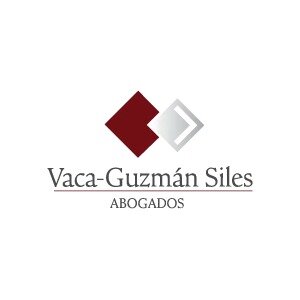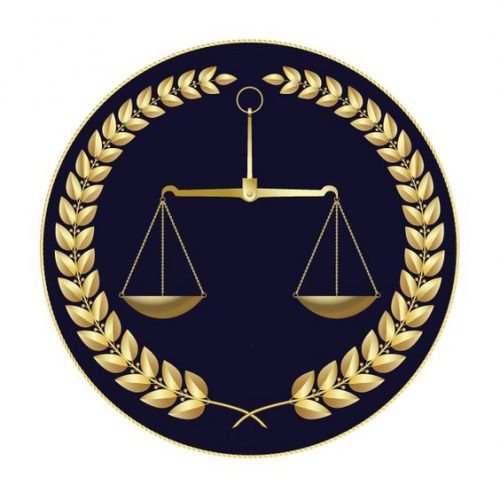Best Sanctions & Export Controls Lawyers in Santa Cruz
Share your needs with us, get contacted by law firms.
Free. Takes 2 min.
List of the best lawyers in Santa Cruz, Bolivia
About Sanctions & Export Controls Law in Santa Cruz, Bolivia
Sanctions and export controls are legal frameworks designed to regulate and monitor the cross-border movement of goods, technology, and funds to promote national security, comply with international obligations, and protect the economy. In Santa Cruz, Bolivia, these laws are particularly influential due to the region's vibrant export and trade activities, including agricultural products, minerals, and manufactured goods. Both national and international sanctions can affect businesses and individuals, making compliance essential to avoid serious legal and financial consequences.
Why You May Need a Lawyer
Legal assistance is often necessary when dealing with sanctions and export controls, as these laws can be complex and subject to frequent changes. You may require a lawyer if you are:
- Planning to export goods, technology, or services from Santa Cruz
- Uncertain about whether your business dealings comply with Bolivian or international sanctions
- Facing an investigation or audit from customs or other government agencies
- Accused of violating sanctions or export control laws
- Entering into contracts with foreign clients or partners
- Seeking to understand restrictions related to countries or regions under sanction by Bolivia or international authorities
- In need of licensing to export controlled goods or technology
- Handling sensitive information or items that might be subject to export restrictions
Lawyers can help interpret the laws, provide guidance on compliance, and represent you in dealings with authorities or court proceedings.
Local Laws Overview
Bolivia regulates sanctions and export controls primarily through national laws, which are enforced locally in Santa Cruz by customs and trade authorities. Some of the key legal aspects include:
- Customs Controls: All exports from Bolivia are subject to inspection and documentation requirements. Santa Cruz, being a major export hub, has strict customs oversight.
- Export Licenses: Certain goods such as minerals, agricultural outputs, dual-use items (civil and military applications), and hazardous materials may require specific export permissions or licenses.
- Sanctions Compliance: Bolivia honors United Nations Security Council sanctions and may adopt sanctions imposed by other countries or regional groups. Engaging in trade or financial transactions with sanctioned individuals, organizations, or countries is prohibited.
- End-Use and End-User Restrictions: Exporters must ensure products are not diverted to unauthorized uses or users, especially in sensitive sectors like defense or technology.
- International Treaties: Bolivia is party to multiple international agreements on export controls and arms trade, which are reflected in local regulations.
Local authorities in Santa Cruz play a vital role in applying these laws, screening exports, and enforcing compliance. Violating sanctions or export controls can lead to heavy penalties, including fines, license revocation, or criminal charges.
Frequently Asked Questions
What are sanctions and export controls?
Sanctions are legal measures restricting trade or financial interactions with specific countries, entities, or individuals, often for political or security reasons. Export controls regulate the movement of certain goods, technology, or services to prevent misuse or unauthorized distribution.
Who enforces these laws in Santa Cruz, Bolivia?
Customs authorities, economic regulatory bodies, and the Ministry of Foreign Affairs enforce sanctions and export controls in Santa Cruz and across Bolivia.
Which goods are commonly subject to export controls in Bolivia?
Controlled items include minerals, agricultural commodities, certain chemicals, dual-use goods (with civilian and military applications), pharmaceuticals, and high-tech equipment.
How do I know if my business requires an export license?
You must consult the Bolivian customs authority or a lawyer familiar with export regulations. If your products are on the controlled goods list or destined for restricted countries, a license is usually required.
What happens if I violate sanctions or export control laws?
Violations may result in heavy fines, restriction or revocation of export privileges, seizure of goods, and even criminal prosecution.
Can local laws override international sanctions?
Bolivian law generally honors international sanctions, especially those mandated by the United Nations. However, the specific application can vary, so legal advice is essential.
Are there any new or upcoming changes to these laws in Santa Cruz?
Export controls and sanctions are continually reviewed, especially in response to international developments. It is advisable to monitor regulatory updates or work with a legal advisor.
How can a lawyer help me with compliance?
A lawyer can review your business operations, provide compliance training, assist with licensing, and defend you in investigations or legal actions.
Is there a list of sanctioned countries or individuals?
Yes, Bolivian authorities publish lists of sanctioned countries and entities in accordance with international obligations. These lists are available at government offices and online portals.
What should I do if my goods are detained by customs?
You should immediately seek legal assistance to understand the grounds for detention and to prepare the necessary documentation or defense for release.
Additional Resources
- Bolivian Customs Authority (Aduana Nacional de Bolivia): Responsible for regulating and overseeing exports and imports, issuing licenses, and ensuring compliance with export control laws.
- Ministry of Economy and Public Finance (Ministerio de Economía y Finanzas Públicas): Monitors and enforces financial sanctions.
- Ministry of Foreign Affairs (Ministerio de Relaciones Exteriores): Issues guidance on sanction regimes and international obligations.
- Local Legal Associations: Organizations such as the Colegio de Abogados de Santa Cruz can help connect you with specialists in sanctions and export controls.
- International Trade Support Agencies: Chambers of commerce and export promotion organizations provide information and training about compliance requirements.
Next Steps
If you require assistance with sanctions and export controls in Santa Cruz, Bolivia, follow these steps:
- Gather all documents and information related to your business, trade transactions, or specific legal concern.
- Identify whether your products or activities may be affected by current export controls or sanctions.
- Contact a local lawyer with expertise in export controls and international trade law. Check credentials or seek recommendations from local legal associations or the chamber of commerce.
- Consult with the relevant government authorities for clarifications on licensing and compliance requirements.
- Attend informational sessions or training if you engage in regular export activity to stay updated on law changes.
- Maintain thorough records of your transactions and communications with authorities in case documentation is needed later.
Proper legal advice is critical to protecting your business and personal interests, ensuring you remain compliant with both national and international law in Santa Cruz, Bolivia.
Lawzana helps you find the best lawyers and law firms in Santa Cruz through a curated and pre-screened list of qualified legal professionals. Our platform offers rankings and detailed profiles of attorneys and law firms, allowing you to compare based on practice areas, including Sanctions & Export Controls, experience, and client feedback.
Each profile includes a description of the firm's areas of practice, client reviews, team members and partners, year of establishment, spoken languages, office locations, contact information, social media presence, and any published articles or resources. Most firms on our platform speak English and are experienced in both local and international legal matters.
Get a quote from top-rated law firms in Santa Cruz, Bolivia — quickly, securely, and without unnecessary hassle.
Disclaimer:
The information provided on this page is for general informational purposes only and does not constitute legal advice. While we strive to ensure the accuracy and relevance of the content, legal information may change over time, and interpretations of the law can vary. You should always consult with a qualified legal professional for advice specific to your situation.
We disclaim all liability for actions taken or not taken based on the content of this page. If you believe any information is incorrect or outdated, please contact us, and we will review and update it where appropriate.














